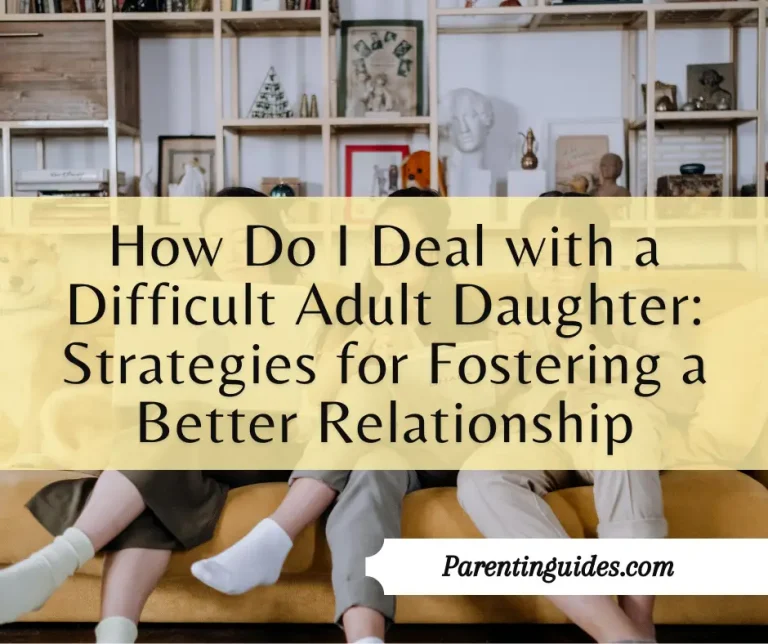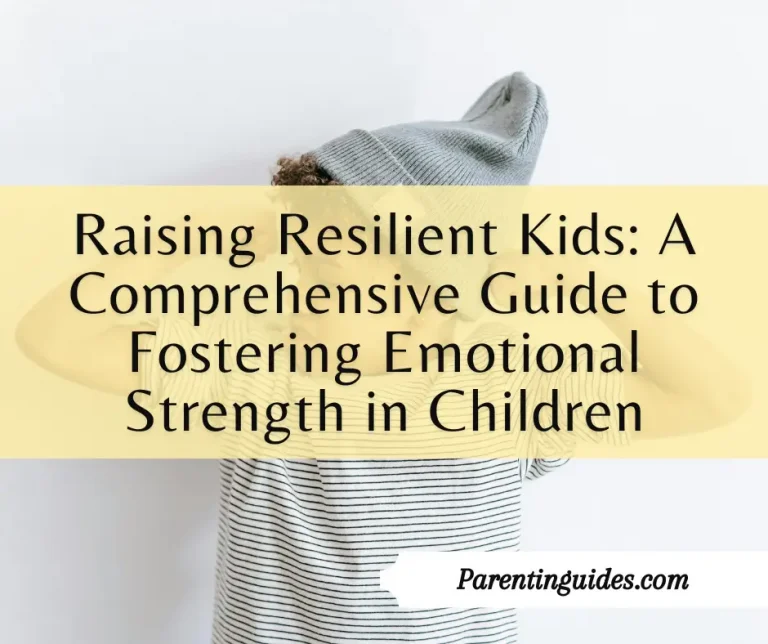As we delve into the realm of parenting, it’s pivotal to recognize the varied styles that shape our interactions and expectations. Among these, authoritarian or strict parenting stands out due to its structured, rule-heavy approach. Here, parents often impose high expectations while providing minimal emotional responsiveness or warmth. Understanding this style is crucial for navigating its complexities and fostering better family dynamics. We often see parents opting for strict methods believing it instills discipline and prepares children for the challenges of the world. However, it’s essential to grasp the nuances and potential impacts of such a parenting style on children.
If you are about to deal with strict parents, it can significantly influence a child’s emotional and psychological development. Strict parenting often leads to children experiencing higher levels of stress and anxiety, as they are constantly under the pressure to meet high expectations and are less likely to be heard. From my counseling sessions, I’ve noticed that these children might excel in structured settings but often struggle with self-esteem and spontaneity. It’s crucial for parents and children to understand these impacts, as it can lead to more informed and compassionate family interactions.
This article aims to provide both parents and children with effective strategies to deal with strict parents. Through my experience as a counselor, I’ve gathered insights and practical advice from various cases that illustrate successful navigation through the complexities of strict parenting. By understanding, communicating, and setting boundaries, families can improve their dynamics, ensuring a healthier emotional environment for everyone involved. Our journey through this topic will equip you with the knowledge and tools to foster understanding and growth in your family relationships and help to deal with strict parents effectively.

Understanding Strict Parenting
Defining Strict Parenting
If you are about to deal with strict parents, often categorized as authoritarian, are characterized by high demands with low responsiveness. In my years as a counselor, I’ve observed that strict parents tend to set very high expectations and enforce rules rigidly, often without providing sufficient emotional support or understanding. This approach focuses on obedience, discipline, and a clear hierarchy in family relationships. Clients have shared that such environments leave little room for open dialogue or flexibility. It’s crucial to recognize these patterns to better understand how to deal with strict parents effectively.
Reasons Behind Strict Behavior
Many parents adopt a strict approach due to their own upbringing, cultural influences, or out of fear that without strict rules, their children might not succeed or stay safe. In counseling sessions, parents often express that their strictness stems from a deep-seated desire to protect their children and prepare them for a competitive world. However, it’s important to strike a balance, as extreme strictness can sometimes lead to negative outcomes. Understanding these reasons can facilitate more empathetic conversations between parents and children. They will help to soften strict behaviors over time and support them to deal with strict parents effectively.
Long-term Effects on Family Dynamics
The long-term effects of strict parenting on family dynamics can be profound. During my sessions, I’ve seen that children raised under strict conditions may excel in structured environments but often struggle with self-esteem and social interactions. They might also exhibit either submissive behavior or rebellion in teenage years. Families dealing with strict parenting need to be aware of these potential outcomes to foster a more nurturing and supportive family environment. Addressing these issues early on can prevent long-lasting impacts on children’s emotional and psychological well-being.
In each of these aspects, it’s clear that understanding and addressing the complexities of strict parenting requires patience and effort from both parents and children. As we continue to explore these dynamics, remember that effective communication and mutual understanding are key in making positive changes to deal with strict parents.

Communication Strategies to Deal with Strict Parents
Opening Lines of Communication
In my practice, I often emphasize the importance of opening lines of communication as a crucial first step in addressing any family issues, especially when needing to deal with strict parents. For children, the challenge lies in initiating conversations without fear of backlash. I advise starting with positive statements or questions about daily routines, which can gradually open doors to deeper discussions. It’s about finding a safe topic that eases the tension and starts a pattern of regular communication. Sharing small, personal achievements or interests can also invite parents to participate more openly in their children’s lives.
Expressing Feelings Appropriately
One common thread in my sessions is the difficulty children face in expressing their feelings to strict parents. If you are about to deal with strict parents, the key here is to express emotions calmly and respectfully, which often leads to better outcomes than confrontational or heated exchanges. I coach children and teens to use “I feel” statements that focus on their emotions rather than accusing parents of wrongdoing. For example, saying, “I feel upset when I’m not heard,” rather than “You never listen to me!” This method helps in keeping the conversation constructive and avoids escalating conflicts.
Listening and Empathy
Encouraging empathy and active listening can transform family dynamics profoundly. In my counseling experience, when both parents and children actively engage in listening to each other’s concerns without immediate judgment or interruptions, it fosters a mutual understanding. I often conduct role-playing exercises where each party repeats back what the other said, ensuring they truly understand each other’s perspective. This practice not only improves communication but also builds a stronger, more empathetic bond between strict parents and their children, helping them to deal with strict parenting more effectively.
Through these strategies, fostering a more understanding and supportive environment. It’s about creating a dialogue where everyone feels seen and heard, which is essential to deal with strict parents.

Setting Boundaries to Deal with Strict Parents
Importance of Boundaries
Setting boundaries is essential when you deal with strict parents. In my counseling practice, I’ve observed that boundaries help create a balance between parents’ rules and children’s need for autonomy. Boundaries are like invisible lines that protect personal space and respect. When parents are strict, children often feel overwhelmed and controlled. Establishing boundaries helps in reducing this feeling.
One of my clients once shared that setting boundaries improved her relationship with her strict parents. She explained that by clearly communicating her need for personal space, she was able to negotiate more freedom while still respecting her parents’ rules. This approach helps in dealing with strict parents because it shows them that their children are responsible and capable of making decisions. Boundaries also teach children the importance of mutual respect, which is crucial for a healthy relationship.
Healthy boundaries can prevent misunderstandings and reduce conflicts. When both parents and children understand and respect these limits, it creates a more harmonious living environment. For example, agreeing on study times versus leisure times can help in managing expectations and reducing stress. Thus, learning how to deal with strict parents becomes easier when boundaries are in place.
Negotiating Rules
Negotiating rules is a skill that can significantly improve your ability to deal with strict parents. It’s about finding a middle ground where both parties feel heard and respected. In my sessions, I encourage children to approach rule negotiations with a calm and respectful attitude. This often involves explaining why certain rules feel restrictive and suggesting reasonable alternatives.
For instance, one of my clients successfully negotiated a later curfew by proving she could handle the responsibility. She started by demonstrating her reliability in smaller tasks, which built her parents’ trust. This approach can be very effective in dealing with strict parents. It’s about showing them that their children can be responsible while also voicing their needs.
Another strategy is to use facts and examples. Children can explain how flexibility in rules can lead to better outcomes. For example, allowing some extra screen time during weekends as a reward for good behavior during the week. This negotiation process helps children learn important life skills like communication and compromise, which are essential in how to deal with strict parents.
Dealing with Confrontation
If you are about to deal with strict parents, confrontations are inevitable. Here, handling them properly can lead to positive outcomes. In my experience, the key to managing confrontations is to stay calm and composed. I often advise my clients to take a deep breath and approach the situation with empathy. Understanding your parents’ perspective can help in diffusing tension.
For example, if a child feels that a rule is unfair, instead of arguing, they can calmly express their feelings. Saying, “I feel overwhelmed by this rule because it limits my ability to relax after school,” can open up a dialogue. This method helps in dealing with strict parents by turning a potential conflict into a constructive conversation.
Active listening is another crucial aspect. I encourage children to listen to their parents’ concerns without interrupting. This shows respect and willingness to understand their viewpoint. One of my clients improved her relationship with her strict parents by practicing active listening. She found that acknowledging their concerns made them more willing to listen to her side of the story. This mutual respect is key in learning how to deal with strict parents.
In conclusion, setting boundaries, negotiating rules, and dealing with confrontations effectively are essential strategies when you deal with strict parents. These approaches not only improve family dynamics but also empower children to express their needs in a respectful and constructive manner. By implementing these strategies, families can create a more balanced and harmonious living environment, making it easier to deal with strict parents.

Seeking External Support
Role of Family Counseling
Family counseling can be a game-changer for families trying to deal with strict parents. In my counseling practice, I have seen firsthand how therapy sessions can open up lines of communication and foster a better understanding among family members. Family therapists are trained to mediate conflicts and provide tools for healthier interactions. When families come to me, they often struggle with expressing their needs and emotions. Through counseling, we work on techniques to articulate these feelings in a way that is both respectful and effective. For instance, role-playing exercises can help children practice discussing their concerns without fear of reprimand.
In many cases, therapy helps parents realize the impact of their strict parenting style. When parents understand how their behavior affects their children’s emotional well-being, they are more likely to adjust their approach. This is crucial when learning how to deal with strict parents. Therapy sessions provide a safe space to explore these dynamics and work towards a more balanced relationship. As a result, families can develop strategies to address issues constructively, ensuring that everyone feels heard and respected. This is essential in dealing with strict parents in a way that promotes mutual understanding and respect.
Educational Workshops and Resources
Educational workshops and resources can also be invaluable in managing the dynamics with strict parents. These workshops often cover topics such as effective communication, conflict resolution, and understanding different parenting styles. From my experience, parents who attend these workshops gain insights into alternative methods of parenting that might be less rigid but still effective. This can be particularly helpful for those looking to deal with strict parents by introducing them to new techniques and approaches.
Workshops can also provide children with tools to express themselves more effectively and understand their parents’ perspectives. For instance, a workshop on emotional intelligence can teach children how to manage their emotions and communicate their needs more clearly. Additionally, resources such as books, articles, and online courses can offer continuous support and education. These materials can be revisited whenever there is a need to address specific issues. By utilizing these resources, families can gradually shift their dynamics towards a more understanding and cooperative relationship. This is a key aspect of how to deal with strict parents in a proactive manner.
Building a Support Network
Building a support network is another crucial step in dealing with strict parents. A strong support system of friends, relatives, or mentors can provide both emotional and practical assistance. In my counseling sessions, I always encourage clients to seek out and cultivate these relationships. Having someone to talk to can make a significant difference, especially when navigating the challenges of strict parenting. Support networks can offer different perspectives and advice that might not be apparent within the immediate family.
For example, I had a client who struggled with her strict parents and found solace in discussing her issues with a trusted aunt. This relative provided a listening ear and practical suggestions, helping her to approach her parents with more confidence. Similarly, mentors can offer guidance based on their own experiences and professional insights. Peer support groups are also beneficial, as they connect individuals facing similar challenges. These groups provide a platform to share experiences and strategies on how to deal with strict parents, fostering a sense of community and mutual support.
By seeking external support through counseling, educational workshops, and building a strong support network, families can navigate the complexities of strict parenting more effectively. These strategies not only provide immediate relief but also contribute to long-term improvements in family dynamics. The goal is to create an environment where open communication, mutual respect, and emotional support are prioritized, helping everyone learn how to deal with strict parents in a way that fosters growth and understanding.

Personal Development and Coping Mechanisms
Developing Personal Resilience
Building resilience is crucial when learning how to deal with strict parents. Resilience helps children adapt to challenging situations and recover from setbacks. In my experience as a counselor, I often advise children to focus on their strengths and achievements. Recognizing personal accomplishments, no matter how small, can boost self-esteem and foster a positive outlook. For example, one of my clients found that keeping a journal of daily successes helped her stay positive despite her parents’ strictness. This practice not only built her confidence but also provided a constructive outlet for her emotions.
Another effective strategy is developing problem-solving skills. Teaching children to approach problems with a solution-oriented mindset can empower them to navigate strict parenting more effectively. For instance, brainstorming multiple solutions to a problem and evaluating their potential outcomes can enhance a child’s ability to handle difficult situations. This approach encourages independent thinking and resilience, which are essential in dealing with strict parents.
Stress Management Techniques
Managing stress is a vital part of coping with strict parents. High stress levels can lead to emotional and physical health issues, so it’s important to find effective ways to manage stress. One technique I often recommend is mindfulness meditation. Mindfulness helps children stay present and reduces anxiety. Simple practices like deep breathing or guided meditations can make a significant difference. I had a client who practiced mindfulness before family discussions, which helped her remain calm and composed, making it easier to deal with strict parents.
Exercise is another powerful stress management tool. Physical activity releases endorphins, which can improve mood and reduce stress. Encouraging children to engage in sports, dance, or even regular walks can provide a healthy outlet for stress. Additionally, creative activities like drawing, writing, or playing music can also help manage stress by providing an emotional release. These activities not only reduce stress but also offer a productive way to deal with strict parents by diverting focus and energy into positive endeavors.
Independence and Self-Sufficiency
Encouraging independence and self-sufficiency can help children feel more in control when dealing with strict parents. Developing skills such as time management, financial literacy, and basic household tasks can foster a sense of autonomy. In my sessions, I often suggest setting small, achievable goals to build independence gradually. For example, learning to cook a simple meal or managing a personal budget can instill confidence and a sense of accomplishment. One of my clients started by managing her own schoolwork schedule, which gave her a greater sense of control and reduced conflicts with her parents.
Moreover, pursuing personal interests and hobbies can enhance a child’s sense of identity and independence. Encouraging children to explore their passions allows them to develop a strong sense of self, which is crucial when dealing with strict parents. For instance, participating in extracurricular activities or joining clubs can provide a sense of belonging and achievement outside the family dynamic. This not only builds self-sufficiency but also offers a supportive community that can help mitigate the effects of strict parenting.
By focusing on these strategies, it will help you to deal with strict parents effectively. These strategies not only help in dealing with strict parents but also contribute to overall personal growth and well-being.

Conclusion
In conclusion, if you are about to deal with strict parents, it requires patience, understanding, and strategic approaches. Through my experiences as a counselor, I’ve seen how communication, setting boundaries, and seeking external support can transform family dynamics. It’s important to remember that while strict parents have their reasons, children also need space to grow and express themselves.
By implementing the strategies discussed, families can find a balance that respects both the parents’ need for order and the children’s need for independence. Remember to open lines of communication, express feelings appropriately, and practice active listening. These steps are crucial in learning how to deal with strict parents effectively.
Additionally, if you are about to deal with strict parents, don’t underestimate the power of external support such as family counseling and educational resources. Building a strong support network can provide the necessary guidance and emotional backing to navigate these challenges. Developing personal resilience, managing stress, and fostering independence are also key elements in this journey.
Ultimately, the goal is to create a harmonious environment where everyone feels respected and understood. By consistently applying these methods, families can improve their relationships and ensure a healthier emotional atmosphere. Learning how to deal with strict parents is not just about managing rules but also about fostering mutual respect and understanding, which are essential for any thriving family.









